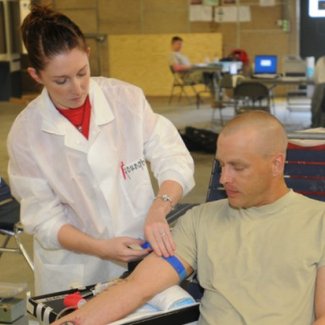
The world of politics in every country seems to be a culture of chaos. There’s lots of confusion on various topics, like who’s really in charge, who actually makes and changes laws, and how does a given part of a certain system work?
For example, what happens to delegates when a candidate drops out?
In order to answer a question like that, some terms need to be defined and understood.
What is a Delegate?
A delegate is a person who attends a meeting or conference on behalf of a group. These meetings or conventions are usually put together by an organization. These gatherings are where members from different parts of the organization can assemble together.
An example of this would be an organization with nationwide membership that may hold an annual convention in which local branches can send members to both vote and represent on behalf of the club.
Groups with delegates may be anything from a church denomination to a political party, social group, parachurch ministry – meaning outside of a denomination but still religious or faith-based in nature – or even a sports club.
What is a Delegate Within the Political Sphere?
In reference to American political parties, “delegate” is the title of a person who is sent to represent a certain state in the presidential primaries. In some way or other, delegates are people that are involved in their state’s politics. To this effect, they could be local party chairs, volunteers, or just citizens interested in participating in the election process.
Depending on the state, there may be superdelegates who also represent the state. Usually, these are elected officials. Superdelegates can choose to vote regardless of primaries or caucuses. A superdelegate is someone who is free to vote for whoever he or she decides to.
What is a Primary?
The goal of a political party primary is to nominate the party’s candidate for the presidential office. There are two main methods in which a candidate can win delegates in a primary.
The Proportion Method
The proportion method is when a given state has fifty delegates and a candidate manages to win half of those delegates. This means the candidate has twenty-five delegates for the primary.
The Winner-Take-All Method
The winner-takes-all method is the method when a candidate manages to win the majority, even if it’s only 51 percent of the vote. When this happens, that candidate gets all the state’s delegates.
Ultimately, whichever the method, when a candidate wins delegates in a state, it is assumed that these delegates are now committed to voting for the candidate at the convention.
In order for a candidate to win their nomination in a presidential race, a candidate has to gather the majority of the delegates. As long as the candidate has at least one more delegate than the other candidates do, that candidate wins the primary.
However, in the case of a tie, this may result in several more rounds of voting and the numbers can change. There is a clause allowing a delegate to change their vote if the first round ends up in being a tie. This allows a delegate to realign his or her alliance with the candidate he or she deems most appropriate for the candidacy.
What Happens to Delegates When a Candidate Drops Out?
As a primary season begins there are typically numerous candidates.
As the season progresses, several candidates typically drop out of the race as they do poorly in the polls.
So, what happens to delegates when a candidate drops out of the race?
Depending on the state which they represent, the delegates are allowed to attend the national convention without a commitment, similar to a superdelegate does. If the candidate they represented chooses to endorse another remaining candidate, the delegate may choose to endorse that candidate.
However, certain states have rules that dictate what a delegate has to do when the candidate they support drops out of the race. The states of Nevada, Puerto Rico, Washington, Iowa, Texas, Virginia, and Montana have their delegates committed to vote for their delegate for one round, regardless of if they are still participating in the race or not.
Incredibly, delegates from Tennessee have their delegates bound for two rounds, even if they no longer have a candidate running for office. South Carolina has their delegates bound to vote for their committed candidate for the first ballot, but, if that candidate is not nominated then they are bound to vote for the candidate who finished second or third in their state.
Delegates and Candidates: What Now?
Ultimately, a delegate in some states has the right to choose to align with another candidate if his original candidate drops out. In other states, however, delegates are required to stick with the original candidate, even after she drops out. To understand what’s happening with a specific delegate in a race, check in with your state’s websites regarding the primaries.












Leave a Reply